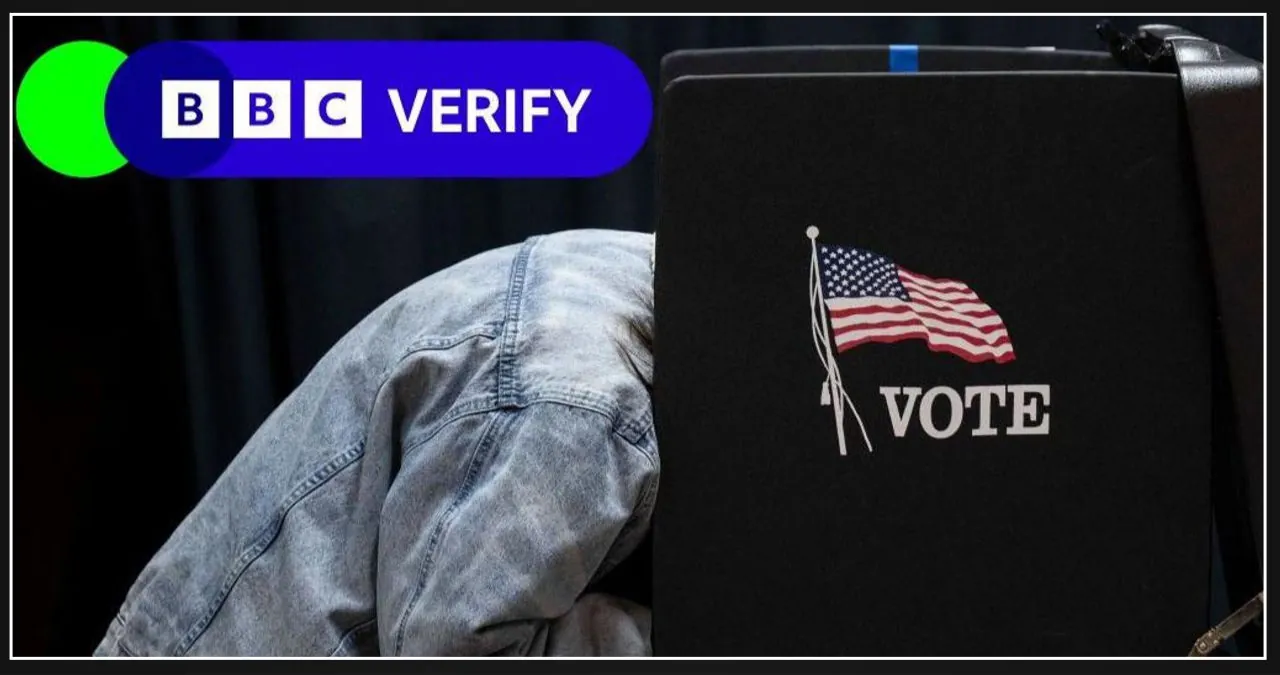The staff at the American Immigration Council, in collaboration with Immigration Impact, has provided the following information.
The American Immigration Council refrains from endorsing or opposing candidates for elected office. Instead, our focus is on providing analysis regarding the potential impact of the election on the U.S. immigration system.
On Election Day, people from different cities and states across the United States came together to vote on matters concerning immigrants. These included issues such as the protection of immigrants, their integration into society, and the possibility of allowing noncitizens to vote.
Arizona’s Proposition 314
The recent approval of Proposition 314,, popularly referred to as the Secure the Border Act, in Arizona, has sparked considerable apprehension regarding its possible adverse effects on both the immigrant communities and the state’s economic prospects.
The measure encompasses two main provisions. The first provision establishes a state offense for individuals who enter Arizona outside of designated ports of entry and grants local law enforcement the authority to detain, incarcerate, and expel individuals suspected of unauthorized entry into the United States. The second provision mandates that employers and public benefit agencies utilize E-Verify to verify the immigration status of individuals for employment eligibility and public benefits. However, the American Civil Liberties Union argues that utilizing E-Verify for immigration status verification is intrusive, costly, and prone to inaccuracies, resulting in the unnecessary squandering of government resources.
Proposition 314, touted as a means to enhance safety and tackle border security issues, was driven by false information and damaging rhetoric.
Proponents of Proposition 314 used public safety concerns as a tactic to promote their harmful policies. They tried to establish a connection between immigration and crime and drug trafficking, citing fears about border security and making unfounded connections between immigrants and the rise of fentanyl trafficking.
Research has consistently shown that there is no correlation between an influx of immigrants and an uptick in criminal activity. In fact, immigrants actually tend to commit fewer crimes compared to individuals born in the United States.
The proposition’s claim that immigrants are involved in fentanyl trafficking is baseless and unsupported by evidence. Both the Drug Enforcement Agency and U.S. Customs and Border Protection data clearly indicate that it is predominantly U.S. citizens who are smuggling the drug into the country through legal ports of entry, not immigrants.
The passage of the law in Arizona, which criminalizes entering the state between ports of entry, is a setback for immigrant communities. The provision comes into effect only if a similar policy has been in effect in another state for 60 consecutive days, like Texas’ SB4. Unfortunately, this law, passed with a 25% margin, perpetuates harmful stereotypes about immigrants without providing any meaningful solutions for Arizona’s communities.
Eight states have passed ballot measures to restrict non-citizen voting, but it is important to note that research has debunked the notion surrounding the need for such measures. These measures involve amending the state constitutions of these eight states, explicitly stating that only U.S. citizens are eligible to vote. However, it is worth mentioning that the federal government has already addressed this issue through the 1996 Illegal Immigration Reform and Immigration Responsibility Act.
Restrictions on non-citizens voting in local elections have been implemented in Missouri and Wisconsin, mirroring the example set by cities like San Francisco. Santa Ana, California also saw its voters reject an amendment that would have permitted non-citizens to vote in municipal elections.
Efforts to protect elections may unintentionally lead to the disenfranchisement of naturalized citizens and the removal of U.S.-born citizens from voter rolls.
In contrast, numerous communities embraced inclusive ballot measures.
In Denver, the city is taking steps to improve its support for immigrant and refugee community members and enhance its recruitment of diverse emergency responders. One significant development is Measure 2S, which officially establishes the Office of Immigrant and Refugees Affairs within the city. This measure aims to ensure that the needs and concerns of immigrants and refugees are properly addressed and that they have access to the necessary resources and support.
Additionally, Referred Question 2T has been introduced to eliminate the requirement that firefighters, police officers, and other first responders must be U.S. citizens. This change opens up opportunities for individuals from diverse backgrounds and allows the city to tap into a wider pool of talent. By removing this barrier, Denver can recruit a more diverse and inclusive team of emergency responders, better reflecting the community they serve.
These ballot measures highlight Denver’s commitment to promoting inclusivity and diversity within its public services. By acknowledging the unique needs and contributions of immigrant and refugee community members and welcoming individuals from all backgrounds into its emergency response teams, the city is taking important steps towards creating a more inclusive and equitable community for all.
Dallas’ Proposition H brought about a significant change by eliminating the need for members of city boards and commissions to be registered voters, qualified voters, or qualified taxpaying citizens. This move aimed to enhance representation for Dallas’ immigrant communities within the local government.
In New York, the state constitution was amended by Proposal 1: Equal Rights Amendment to include safeguards against discriminatory treatment based on factors such as ethnicity and national origin.
Looking towards 2025, it is evident that states and localities will continue to actively engage with immigration matters. By mid-year 2024, the American Immigration Council had already monitored more than 700 state bills related to immigration, with numerous states pushing for inclusive policies. While the national immigration discourse will undoubtedly shape the state and local landscape, there is a sense of optimism moving forward.
As the year draws to a close, communities have shown their unwavering support for immigrants by implementing pro-immigrant measures. This demonstrates their resilience and dedication to protecting and including immigrant communities, regardless of the actions taken by the federal government.

